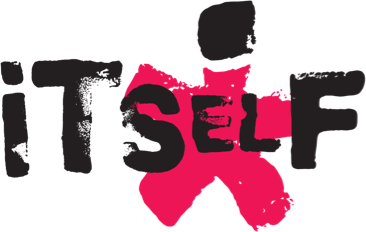The Festival
‘This festival is like a storm that rocks our boat. We await it, but when it’s gone, it leaves silence’ – these words were written in 2009, halfway through our 20-year experience, by Beata Szczucińska – the current Chancellor of the Theatre Academy in Warsaw. The mood hasn’t changed much. The political and climatic situation both in Poland and abroad is undergoing transformation, the artist’s role is being redefined, and theatre functions are given new shape. And yet, young people and drama schools from all over the world still come to Miodowa Street in Warsaw to experience and understand things.
In his Study on Hamlet, Stanisław Wyspiański – a founder of the modern Polish theatre, being painfully refused to lead a theatre in Cracow, left a telling message to Polish actors. Following the thought of William Shakespeare he ordered them to serve ‘as ‘t were the mirror up to nature; to show virtue her own feature, scorn her own image, and the very age and body of the time, his form and pressure.’ Wyspiański did not read Shakespeare in the original language, and his perception of the master from Stratford’s works was tinted with melancholy, anxiety and suffering breaking the Elsinore walls apart.
Poland is Hamlet is the title of a debate proposed by Patrick Spottiswoode – our friend and member of the ITSelF, which takes place at the festival of Polish theatre at The London Globe. We do feel drawn to a vision of a hero philosophizing over the unearthed skull of a jester, and prophesying failure for all political orders of the royal court. We, Poles, somehow prefer to be disobedient and ironic, than to despair over the divided kingdom and futilely strive to restitute it – an attitude which the European Lear would share. Despite numerous obstacles we bring the festival to life or, actually, give it space to exist; owing to our international friends asking about its future editions and wondering with us, which season of the year is more interesting in Warsaw – a tropical summer or a too short and capricious winter?
Thanks to our friends we can share our Renaissance civic and republican traditions organise world reading of the first Polish tragedy written by Jan Kochanowski. We popularize Polish traditions of stage song, each year taking over the magnificent Singing Mask Festival in Petersburg. We are following in Giessen’s footsteps, organizing the conference Giessen and others, are present in Beijing and New Delhi in Asia, Lima, Mexico, Boston and Los Angeles in America, and finally performing the anthem of the European Union at the seat of the European Parliament. We keep repeating it to our students and try to prove it in practice that art should know no boundaries and artists are not mere craftsmen, but citizens of the world, who are aware of their potential impact and bear responsibility for both themselves and others.
Thanks to such organisations as PLETA and EUTSA our college is at the centre of the European debate on ethos and the role of an artist in the society, cultural identity of nations inside and outside the European Union, shaping both their national individuality and the state unity. Theatrical presentations of the last years editions of the festival prove that young artists more and more frequently take things in their hands and make their shows almost independently, choosing topics which apparently don’t concern them. Examples of this may be the last year Romanian stagings, reflecting on tightening up the legislation on the definition of family, or the Belgian one – pondering on readiness of the so called ‘old Europe’ to confront the dynamic wave of immigrants. More or less formal meetings of student and professors result in spectacular acts of reconciliation between feuding countries and nations, as the genuine theatre is in fact a regular and cordial dialogue.
This year the festival will host performances, which dispute the traditional form of staging and resemble fashion show, ecological dance etudes or cookery performative actions. We believe that despite numerous political and financial obstacles all the invited artists will be able to join us. The audience and artists are changing and so is the theatre. The subject of this year festival conference is Change – now! The international debate will regard subjectivity of an actor, who stops being a passive executor of the director’s will, and becomes a co-participant in the creative process and an active player in the international cultural circulation.
The 19th century crisis of hierarchical institutions and traditional divisions into art genres is nowadays clashed with the activity of budding, interdisciplinary creative collectives, meandering between European festivals, cooperatives applying for grants and artistic groups not attached to a particular place or country. It proves progressive cross-border trends and implies significant changes on the job market. Whether it’s because of social inequality, old-fashioned institutions, Netflix, GAFA or budget airlines, it becomes a common phenomenon, which calls for analyses and specific legal standards, regulating professional status of artists-freelancers, and, most of all, support for their activities. This year in Warsaw, watching the youngest generation of artists, we will have an opportunity to look into the future. We can hardly wait. And you?
Professor Waldemar Razniak, Ph.D.
